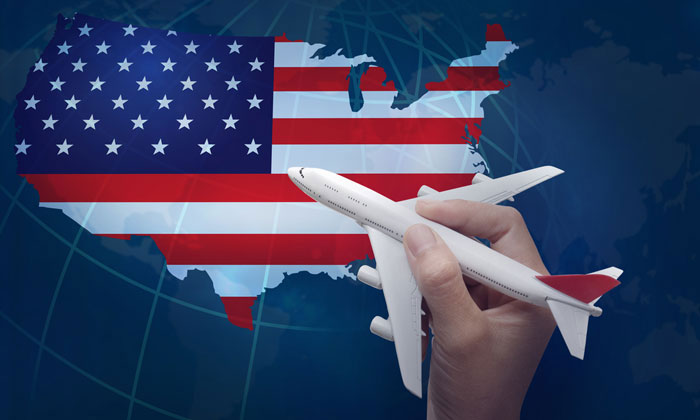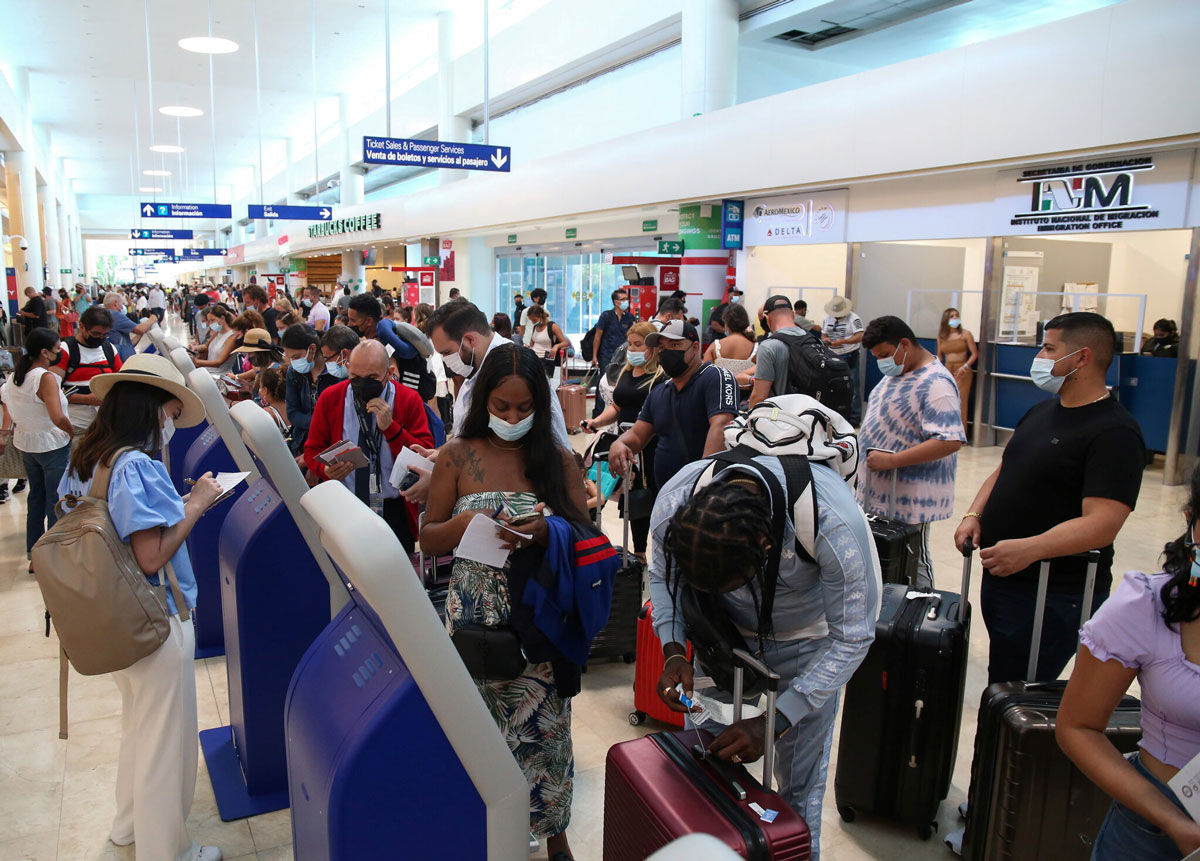Is it too soon to consider allowing unvaccinated travelers in the United States? With vaccination rates rising and more than 50% of Americans already fully vaccinated against COVID-19, this is a question on many people’s minds. After a year of restricted travel, airlines and other tourism-dependent businesses are eager to see an increase in visitors.
But government leaders wonder: Is the rate of vaccinations high enough to comfortably handle tourists who haven't been vaccinated yet? Weighing health risks with economic concerns is always tricky — but now, policymakers could face their most complex decision. Let's look at what needs to be considered before allowing unvaccinated passengers in U.S airports again.
How can unvaccinated travel to the U.S.?
When will the United States allow unvaccinated travelers? These are questions on many people's minds as the country begins to open back up after a year of travel restrictions due to the COVID-19 pandemic.
The answer needs to be clarified and cut. With more than 50% of Americans already fully vaccinated against COVID-19, there is a need to consider the risks and benefits of allowing unvaccinated travelers in the United States. On the one hand, airlines and other tourism-dependent businesses are eager to welcome visitors back onto their planes and into their hotels. On the other hand, government leaders must balance health concerns with economic interests when deciding whether or not to loosen travel restrictions.
Some of the current carriers are flying from Europe to the U.S.
Some of the current carriers flying from Europe to the U.S. require travelers to present proof of full vaccination and a negative COVID test before allowing entry. However, it is still too soon for the U.S. to allow unvaccinated travelers as the country has yet to reach herd immunity, which requires at least 75%-80% of its population to be vaccinated against the virus.
Until then, the United States will continue to enforce its current travel restrictions for unvaccinated travelers. When it does eventually allow unvaccinated travel again, it will be important for airlines and other businesses to ensure proper safety protocols are in place to protect vaccinated and unvaccinated passengers from contracting COVID-19.
Ultimately, choosing when to allow unvaccinated travelers in the United States will be based on health and economic considerations. When the time comes, U.S. government leaders must make difficult decisions that weigh risks and rewards. Until then, it is important to continue wearing masks, washing hands regularly, and socially distancing from others to protect ourselves and our communities.
US reopening borders for tourism: Update Archives
USA Today. (2020, June 3). Retrieved from https://www.usatoday.com/story/travel/destinations/2020/06/03/us-reopening-borders-tourism-update/5329582002/.
Centers for Disease Control and Prevention. (2021, March 8). Retrieved from https://www.cdc.gov/coronavirus/2019-ncov/travelers/faqs.html.
World Health Organization. (2020, October 5). Retrieved from https://www.who.int/news-room/q-a-detail/herd-immunity-and-covid-19.
American Airlines Carriers Require Proof of Vaccination to Fly. (2021, April 7). Retrieved from https://www.travelpulse.com/news/airlines/american-airlines-carriers-require-proof-of-vaccination-to-fly.html.
U.S. to vote to end COVID vaccine mandate for foreign air travelers
White House. (2021, April 15). Retrieved from https://www.nbcnews.com/news/us-news/u-s-vote-end-covid-vaccine-mandate-foreign-air travelers-whitehouse n1262436.
Increase the pressure on the Covid mandates in Florida State
The American state of Florida has seen increased pressure to implement Covid-19 mandates. The state is known for its warm climate, welcoming hospitality, and tourist attractions like Disney World and Universal Studios that draw visitors worldwide. Local government officials have implemented various safety measures to protect both citizens and tourists alike, such as mandatory face masks and social distancing.
Due to the state’s large number of visitors and its overall high rate of infection, local officials need to ensure that these Covid-19 related health protocols are in place and are being enforced. Unfortunately, there has been growing resistance towards these mandates from Florida citizens and visitors alike. This has pressured the local government to consider loosening restrictions or eliminating them.
In response, several towns in Florida have taken steps to ease Covid-19 related regulations, including allowing businesses to reopen with limited capacity, permitting outdoor dining at restaurants, and increasing their testing and contact tracing efforts. However, despite these measures, the state still faces a high risk of infection and needs to strengthen its efforts to reduce transmission.
TSA extends ban on unvaccinated travel to USA
The Transportation Security Administration (TSA) recently announced that it would be extending its ban on unvaccinated travelers entering the United States. This ban applies to all air travelers, regardless of their citizenship or residency status. This policy aims to help protect American citizens and visitors from the spread of Covid-19 by reducing exposure to the virus.
The TSA has also extended other Covid-related policies, such as requiring face masks on flights, mandating that passengers provide proof of a negative Covid-19 test before boarding, and prohibiting certain items like alcohol and drones from being brought onboard. These measures are in place to help mitigate the spread of the virus and keep passengers safe during their travels.
While these policies are necessary to protect travelers, they have put an additional financial burden on airlines that now must enforce these new regulations. Additionally, some people have expressed concern that the ban on unvaccinated travel could lead to discrimination against those without proof of vaccination.
FAQs
Are there any safety measures in place for unvaccinated travelers?
Yes, while it is still uncertain when unvaccinated travelers will be allowed in the U.S., airlines and other tourism-dependent businesses are taking necessary precautions to ensure the safety of all passengers. These include temperature checks upon arrival, social distancing requirements, and providing passengers with protective masks and sanitizing wipes.
What restrictions might be in place for unvaccinated travelers?
When the United States does allow unvaccinated travel, travelers may still need to follow certain rules and regulations. Travelers could be required to provide proof of a negative COVID-19 test or face mandatory quarantine upon arrival.
Additionally, those who are not vaccinated may also be asked to take additional safety measures, such as wearing a protective mask and practicing social distancing at all times. The specific restrictions that will be in place will depend on the local regulations of the destination country. Travelers must research any requirements before they make travel plans.
When will international travel restrictions be lifted?
This is another difficult question to answer, as lifting travel restrictions depends on both local and federal regulations in the countries involved. Currently, many nations are beginning to ease their travel restrictions. However, it is best to check the status of any destinations you plan to visit to ensure you are aware of any travel restrictions that may still be in place. When it comes to international travel, safety should always remain the priority.
Conclusion
Answering the question of when the United States will allow unvaccinated travelers is complex and difficult. There are many factors to consider, including health risks and economic concerns. Regarding international travel, safety should always remain a priority, and travelers should research any requirements before making travel plans. When all factors are considered, policymakers can only make an informed decision about when to allow unvaccinated travelers in the United States.

Sean William Nov 10, 2023
Explore the Beauty of Madhya Pradesh with Famous Bike Tours

Sean William Nov 10, 2023
Best ATV Ride Tours in Bangalore: ATV Rides Places in India, Best Time and Tips

Sean William Nov 14, 2023
12 Peaceful Places In India To Get Rid Of Humdrum Of Life:

Juliana Daniel Nov 16, 2023
Exploring Mauritius Beaches

Juliana Daniel Jan 10, 2023
How To Plan Your Trip To Charleston: Tips And Tricks

Juliana Daniel Nov 22, 2023
Best Place To Visit In Hoi An For Trekking

Sean William Nov 11, 2023
How to Visit Suraj Water Park: Tips and Best Timing - Things You Need To Know

Juliana Daniel Feb 17, 2023
